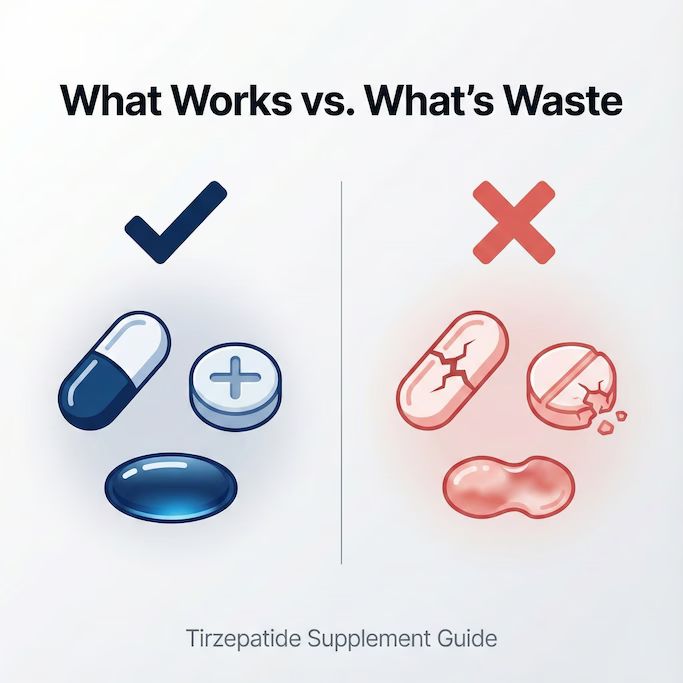From beer brewing in ancient Babylonia to fruit fermentation in Greece, consuming fermented food is nothing new. Sure, some of our ancestors developed fermentation to preserve foods during the harshest seasons, but modern research shows us it’s a practice worth continuing for optimal gut health. Not only do fermented foods aid digestion, but they can also boost immunity, reduce inflammation, and much more.
Let’s break down the science of how this all works.
You may be wondering — what, exactly, is fermentation?
Fermentation is a process in which carbohydrates, such as sugars or starches, are broken down into simpler substances like alcohol or acids, with the help of bacteria, yeast, or other microorganisms. This alcohol or acid then acts as a natural preservative. The process is used for many different types of popular foods, from yogurt to sourdough bread and sauerkraut.
But fermentation isn’t only important because it helps us make great food. Studies show that fermented foods contain potentially powerful probiotic microorganisms like lactic acid, which can reach the gastrointestinal tract and fight harmful bacteria, helping to balance the gut microbiome.
Gut health is kind of a big deal
Your digestive tract is home to around 100 trillion bacteria and other microorganisms, making up your gut microbiome. When your gut is diverse and healthy, it can boost your immune system and reduce inflammation that can lead to health conditions like obesity, diabetes, and neurodegenerative diseases.
A bunch of different factors can compromise the gut microbiome, including stress, taking antibiotics, consuming a poor diet, and aging. Eating fermented foods may help reinstate a healthy balance of bacteria in your gut.
Try fermented foods for these health benefits
Balancing the gut microbiome with fermented foods doesn’t just protect against illness and disease; it can also boost mood, give you more energy, and improve your athletic performance. Here are a few science-backed health benefits of eating fermented foods:
- Healthy digestion: Fermented foods supply your gut with probiotics that help with digestion. Probiotics help prevent harmful bacteria from getting you sick (and train your body to recognize these microbes in the future) and improve the absorption of important nutrients in your foods.
- Lower inflammation: Some studies show that fermented foods may have an anti-inflammatory effect, helping to reduce the symptoms or advancement of certain inflammatory diseases like arthritis, inflammatory bowel disease, diabetes, and cardiovascular disease.
- Enhanced immunity: Probiotics found in fermented foods may help you ward off illness and infection.
- Improved mood and cognitive function: There is some evidence that eating fermented foods may improve cognitive function by supporting the gut-brain axis.
- Increased athletic performance: Probiotics may improve endurance, strength, agility, muscle recovery and other aspects of athletic performance.
These are just a few of the various studies supporting probiotics and fermented foods.
But here’s a word of caution if you’re planning on further investigating the benefits of fermentation — or really for any other foods and supplements that claim to enhance your health. While we are excited about the emerging research on fermentation, it’s important to note that some studies are published with their own agenda in mind. For instance, this study on the benefits of kimchi was sponsored with grants from the World Institute of Kimchi. We’re definitely not saying kimchi doesn’t have health benefits (after all, this peer-reviewed study confirms its anti-inflammatory properties), but always fact-check sources when it comes to industry-funded studies to be sure you’re accessing the most accurate information. You know, in case Big Kimchi strikes again!
Easy ways to add fermented foods to your diet
There’s no need to shell out big bucks at a fancy health foods store to add fermented foods to your diet. You can find them nearly anywhere. Here are a few of our top picks:
- Yogurt (choose a kind made with real milk & that’s low in sugar)
- Kefir
- Sauerkraut
- Kimchi
- Kombucha
- Torshi
Dr. Cam’s Health Hack
According to Dr. Cam, fermented foods can satisfy two staple requirements in your diet: vegetables and dairy. He says:
“Unpopular Opinion: the only vegetables and dairy most people should consume is fermented for the probiotics.
There's nothing vital in regular veggies & dairy that you can't get from fruit & meat.
Veggies: kimchi, sauerkraut, torshi
Dairy: kefir, skyr, greek yogurt, cheese”
Some important takeaways:
- Fermented foods contain probiotic microorganisms that can help balance the microbiome. This can aid digestion, reduce inflammation, and improve immunity.
- Adding fermented foods to your diet doesn't have to be expensive or complicated. Options like yogurt, sauerkraut, kimchi, kombucha, and sourdough are available in many places
Disclaimer: The contents of this article, including, but not limited to, text, graphics, images, and other information, is for information purposes only and does not constitute medical advice. The information contained herein is not a substitute for and should never be relied upon for professional medical advice. The content is not meant to be complete or exhaustive or to be applicable to any specific individual's medical condition. You should consult a licensed healthcare professional before starting any health protocol and seek the advice of your physician or other medical professional if you have questions or concerns about a medical condition. Always talk to your doctor about the risks and benefits of any treatment. Never disregard or delay seeking professional medical advice or treatment because of something you have read on this site. Maximus does not recommend, endorse, or make any representation about the efficacy, appropriateness, or suitability of any specific test, products, procedures, treatments, services, opinions, healthcare providers or other information contained herein. Maximus is not responsible for, nor will they bear any liability for, the content provided herein or any actions or outcomes resulting from or related to its use.





